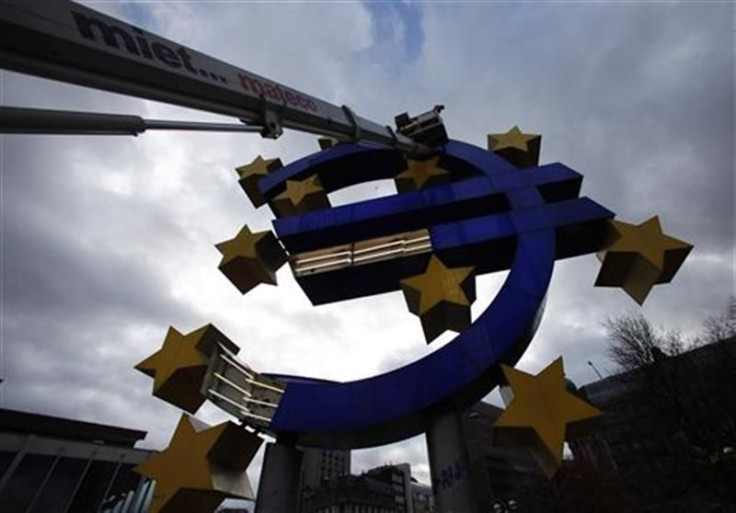Europe's Shadow Darkens Outlook

(Reuters) -- A renewed focus on Europe's banking and debt crisis may quickly sap the nascent optimism about global economic prospects that followed a remarkably solid U.S. January employment report.
While the U.S. jobless rate fell to the lowest level in nearly three years, euro zone unemployment has climbed to 10.4 percent, its highest since before the adoption of the euro.
China, another key engine of growth, is hitting its own speed bumps as it faces a rocky real estate market and high local debt levels.
Curiously, the better U.S. employment outlook may deprive global equity markets, which have been a source of strength for economic activity, of a key recent impetus for continued gains -- the prospect of another monetary easing from the Federal Reserve.
There does not appear to be any particular economic urgency for the Fed to step in, said Vassili Serebriakov, currency strategist at Wells Fargo.
Global investors could be in for a bit of a hangover from a post-jobs report surge in stocks that pushed the Nasdaq to 11-year highs as attention turns back to the prospects for a Greek default and chances of contagion beyond Europe.
As the economic data calendar thins out and the world turns its focus back to the euro zone's financial debacle, there is little reason to hope for a decisive resolution to the two-year ordeal.
Even basic scheduling has become a sticking point in Greece's negotiations on a debt restructuring with bondholders. On Friday, Jean-Claude Juncker, head of the Eurogroup of finance ministers, said officials would no longer be meeting on Monday, as previously expected, but might do so later in the week.
Despite some positive data on the euro zone's service sector and a big effort by the European Central Bank to keep bond markets treading water, there are still plenty of signs of gloom for the European economy. Many analysts worry that policies aimed at fiscal austerity have been pushed too far and will stifle economic growth and lead to a cycle of stagnation and higher indebtedness.
The ECB has bought some room to breathe for Europe, but a recession is a matter of time, in our view, said Ethan Harris, economist at Bank of America-Merrill Lynch.
EU sources said on Friday that euro zone governments might need to pony up 145 billion euros to Athens under a second emergency loan program, 15 billion more than previously expected. The IMF says Greece's debts must be cut from around 160 percent of gross domestic product now to 120 percent of GDP by 2020 in order to be sustainable.
There are also concerns that China may be faltering. While most economists are still hopeful that it can manage to slow its economy down from earlier levels that were seen as unsustainable, there is a latent fear that the authorities may push too far in the other direction.
China has many problems to overcome, said Jorg Kramer, chief economist at Commerzbank. The property market is cooling, investment growth is slowing and there is a risk of rising non-performing loans.
But in a note of optimism, he added: The government and the central bank have more scope to counteract than many observers assume.
Data on consumer prices from China will give a sense of the direction the economy is headed, while industrial production numbers out of Germany are likely to confirm the continent's two-tier growth path.
But one thing is clear: the outcome of Greece's marathon debt negotiations and fears of Europe's troubles spreading will cast a dark shadow over the economic outlook.
^^^^^^^^^^^^^^^^^^^^^^^^^^^^^^^^^^^^^^^^^^^^^^^^^^^^^^^^^
Graphics on payrolls, jobless rate:
http://link.reuters.com/kep46s
http://link.reuters.com/nep46s
Graphic on U.S. and world services PMI:
http://link.reuters.com/zyp46s
For the week ahead in U.S. economic data: http://graphics.thomsonreuters.com/12/02/IFRPV020612.pdf
^^^^^^^^^^^^^^^^^^^^^^^^^^^^^^^^^^^^^^^^^^^^^^^^^^^^^^^^^
(Editing by Dan Grebler)
© Copyright Thomson Reuters 2024. All rights reserved.





















